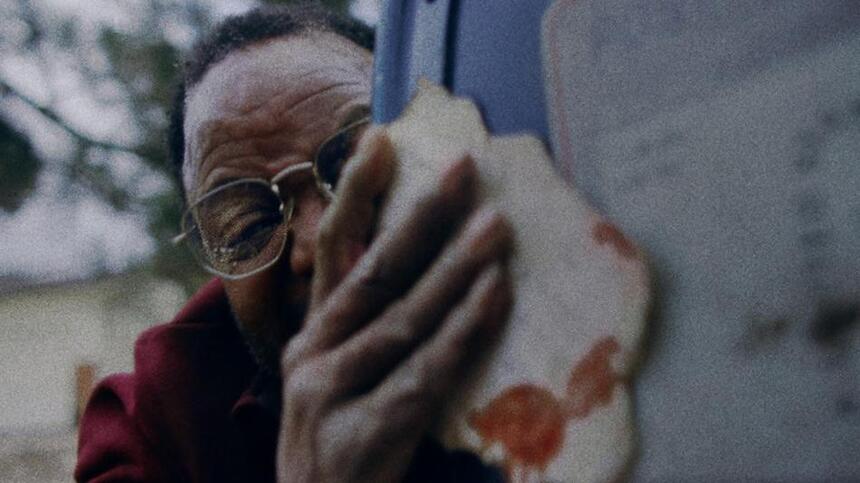This little gem’s settings, costumes, hair, and make-up are so spot-on that you might think it’s a documentary made in the eighties. Jasper is the man in charge of the local Dead Letter Department at the post office. He is a genius at tracking the correct destination on items with wrong, illegible, or absent addresses. When a blood-stained scrap of paper comes in asking for help at a location shown only as “the white house on Rural Road 114”, Jasper gets busy. He has an overseas contact who helps with complex cases; we get the impression that the guy is a KGB agent or a Stasi.
In this era before iPhones and laptops, Jasper needs help finding the location and owner’s name of the unknown house; just as his contact is giving him the information, Jasper is attacked and is permanently silenced. We are now introduced to the situation that led to the cry for help. Josh, a fortyish African-American, had been working with Trent to develop a perfected version of woodwinds on a synthesizer. Josh is the brains, and Trent is the financing. Just as they complete their work, Josh gets a great job offer from the Japanese company to sell their finished product. Trent thinks it is a betrayal, but Josh has no intention of cutting Trent out of the deal; he intends to uphold their partnership in every way. Nevertheless, Trent kidnaps Josh in the midst of moving and keeps him prisoner in his (Trent’s) home.
Two women co-workers of Jasper suspect they know the reason behind his death and start their investigation. All the characters are fully fleshed out and interesting. The pace is fast, and the movie is suspenseful and full of clever ruses and impersonations. During the end credits, we see “where are they now” information about the characters, but at our Q and A with the directors, they admitted they did that as a joke because the movie is fiction—a truly delightful film, with humor and heart.
